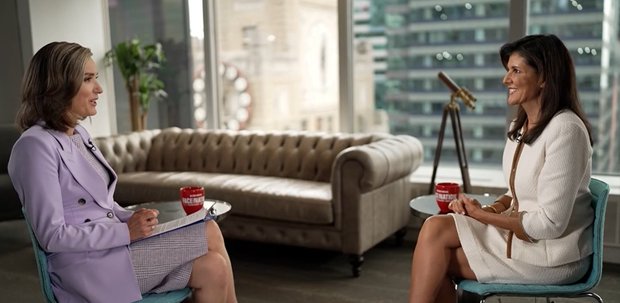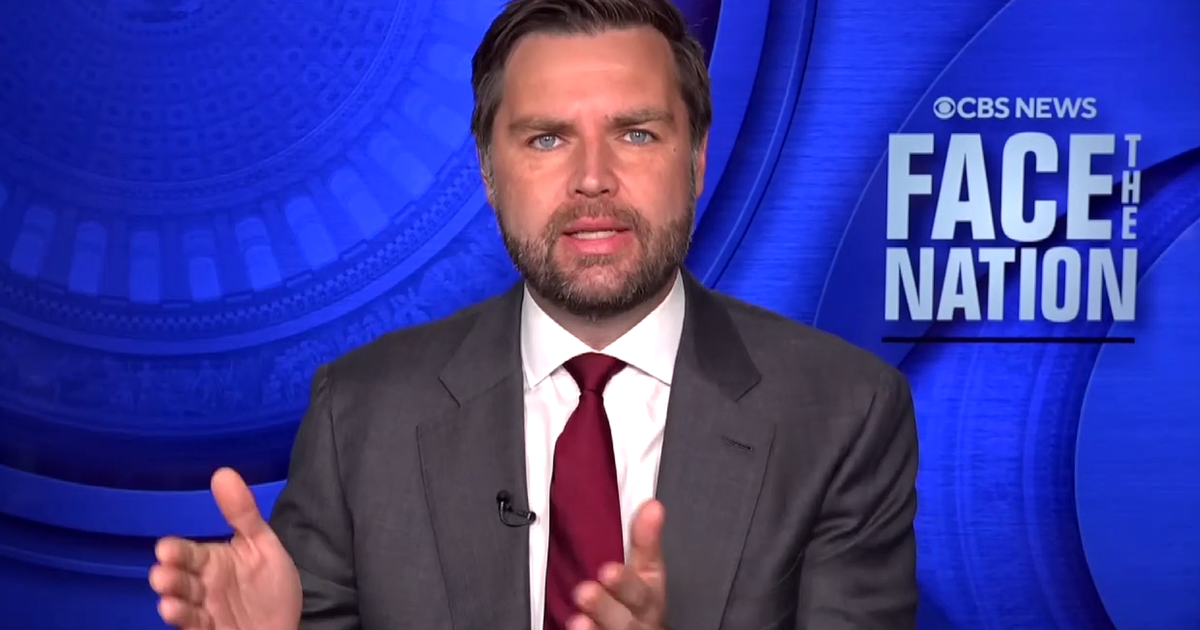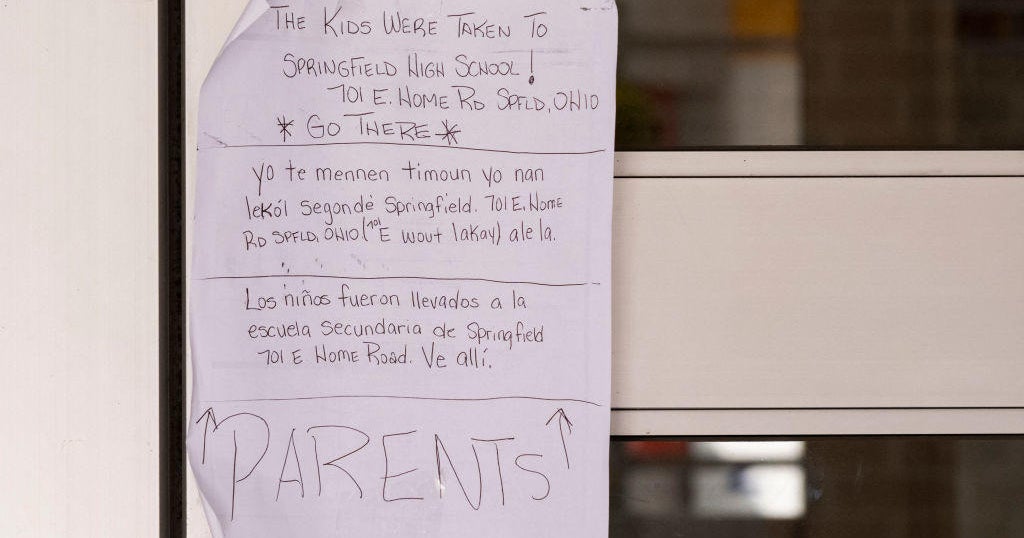Nikki Haley says she doesn't "agree with Trump 100% of the time"
Nikki Haley, former U.S. ambassador to the United Nations and Donald Trump's former rival for the Republican nomination, doesn't agree with the Republican ticket about everything.
Haley sat down for a wide-ranging interview with CBS News' "Face the Nation with Margaret Brennan," sharing her thoughts on Trump's proposal to mandate in vitro fertilization coverage, the Trump campaign's idea to expand tax credits for those with children, and Trump running mate Sen. JD Vance's controversial comments about "childless cat ladies."
"I don't agree with Trump 100% of the time," Haley said. "I don't have to like him or agree with him 100% of the time to know that life for Americans would be better under the policies where we had strong immigration, where we had law and order, where we had an economy where we could look at opportunities, where we've got national security that is strong. I don't need to sit there and like someone to decide those policies are better."
Haley disagrees with Trump's recent proposal that insurance companies be mandated to cover in vitro fertilization (IVF) treatments, or that they be paid for by the government. All mandating coverage would do is make insurance costs higher, she said.
Haley and her husband struggled with infertility, and she said she used fertility treatments to bring her daughter and son, now adults, into the world.
"Both of my children were products of fertility [treatments]," she said. "We want that option to be available to everyone. But the way you do it is you don't mandate coverage. Instead, you go and you make sure that coverage is accessible, and you make sure that you're doing everything you can to make it affordable."
For Americans who do have children, Haley was asked about Trump's saying in an economic speech Thursday that childcare is "relatively speaking, not very expensive." That isn't the reality for many Americans, Brennan noted.
Haley disagreed with Trump's statement, saying "childcare is very expensive."
But "when you get into child tax credits, you're picking winners and losers," said Haley, insisting she'd rather have tax cuts for Americans across the board.
Haley also took issue with some of Vance's controversial comments about childless women, comments for which Vance has declined to apologize.
"It's not helpful. It's not helpful," Haley said about Vance's comments about childless women.
Still, Haley said she chooses to look at "substance" over "style."
"Style is, no, it is not helpful to talk about whether women have children or whether they don't," she said. "...I have said that and I will continue to say to Republicans, stop it, that's not helpful."
On the foreign policy front, Haley recently visited Taiwan and met with leaders there, as they withstand increasing aggression from China. Haley said the Taiwanese are facing 30 million cyber attacks a month, as well as aggression by air and sea from the Chinese. If China takes Taiwan, that would have a much greater economic impact to the globe than Russia's attack on Ukraine, she said.
"We need to care about that," Haley said.
Haley said disinformation by foreign actors and influencers like China and Russia, particularly on platforms like TikTok, is a serious threat to the U.S.
"America needs to wake up when it comes to foreign actors," she said.
Haley said she hasn't been asked to campaign for former President Donald Trump and isn't advising him or his campaign, but she remains "on standby."
The former GOP presidential candidate said she spoke with Trump in June and offered to help. At the Republican convention, she offered her "strong endorsement" of Trump, even though Trump and Haley have offered harsh assessments of each other in the past.
"You know, he knows I'm on standby," the former South Carolina governor said. "I talked to him back in June. He's aware that I'm ready if he ever needs me to do that."
With the first debate between Trump and Vice President Kamala Harris approaching Tuesday, Haley said she's not advising the president, "and that's his choice — whatever he decides to do with his campaign, he can do that." But "should he ask, I'm happy to be helpful."


